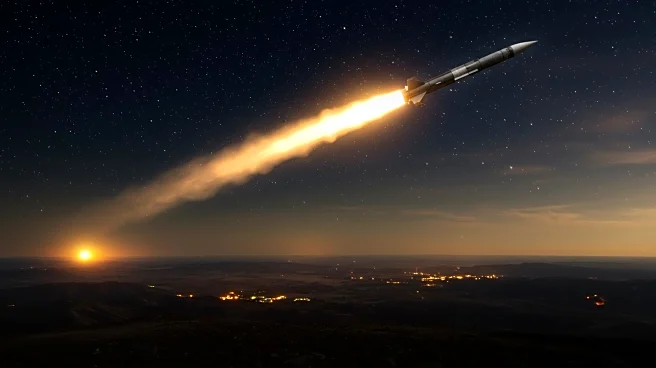What is the story about?
What's Happening?
The recent U.S. attack on Iran aimed to dismantle Iran's uranium enrichment capabilities and assert deterrence. However, Iran has responded by accelerating its uranium enrichment and considering withdrawal from the Non-Proliferation Treaty. This has led to heightened tensions, with U.S. bases on alert for potential retaliatory attacks by Iranian-backed militias in Iraq. The Houthis have threatened Red Sea shipping, and Hezbollah is preparing for possible conflict. The Islamic Revolutionary Guard Corps has increased its influence over Iran's nuclear policy, and the country's rhetoric has shifted towards defiance. The attack has also prompted strategic shifts, with China and Russia increasing their regional involvement, and Gulf states reassessing their alliances.
Why It's Important?
The U.S. attack on Iran has significant implications for regional stability and global geopolitics. It risks escalating military conflicts in the Middle East, potentially involving U.S. allies like Israel. The attack has also strained the nonproliferation regime, as other countries may view preemptive strikes as a normalized tactic. Economically, the attack could disrupt global oil markets and trade routes, affecting international economies. The strategic realignments by China and Russia could alter power dynamics in the region, challenging U.S. influence. The situation underscores the complexities of using military force as a tool for achieving strategic objectives.
What's Next?
The situation may lead to further military escalations or diplomatic negotiations. Iran might return to negotiations due to internal pressures or strategic recalibrations. The U.S. and its allies will need to navigate the heightened tensions carefully to avoid broader conflicts. Regional alliances may shift, with countries like Saudi Arabia potentially strengthening ties with Israel under the Abraham Accords. The international community will likely monitor the situation closely, with potential implications for global security and economic stability.
Beyond the Headlines
The attack highlights the challenges of using military force in complex geopolitical landscapes. It raises ethical questions about the use of preemptive strikes and their long-term consequences. The situation also reflects broader shifts in global power dynamics, with emerging powers like China and Russia seeking to expand their influence. The attack may prompt a reevaluation of U.S. foreign policy strategies in the Middle East and beyond.
















